Please fill out the following information, and RRFC Admissions will contact you to discuss our program offerings:
Issue #78
by L. Swift and Jeff McQ


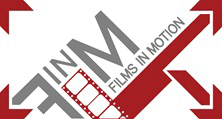 When Film Connection graduate Huan Tran first showed up for his apprenticeship with Jason Hewitt of Films in Motion in Baton Rouge, Louisiana, he was a completely open book. He didn’t have a clue what he wanted to do. He just knew he wanted to work in film.
“I jumped around a lot,” he says. “Honestly, I didn’t know what I wanted to do. So Jason basically was like, ‘You know what? Try out everything and see what fits you best.’ And that was the best thing to do.”
That’s exactly what Huan did. “Jason put me [first] into post production—editing and coloring,” says Huan. “Editing is—either you have it or you don’t….It was fun, but it just wasn’t for me. So I went from that to set designing, which is the art department. I had a blast there, but I just didn’t see myself doing this.”
That’s about the time Huan met Jason’s fiancee, Lisa Marie Dupree, who was doing casting for the company. Almost immediately, things clicked into place.
“She was looking for a casting assistant because she was casting Left Behind. Each day, actually four days straight, she was casting 200 people per day,” says Huan. “So basically I helped her pick up the phone and start casting people, by phone and by email. And she was like, ‘Wow, you’re actually pretty good at this.’…I’m a people person. I’m very social, so I mean, it’s a skill that I have that I can read people pretty well.”
When Film Connection graduate Huan Tran first showed up for his apprenticeship with Jason Hewitt of Films in Motion in Baton Rouge, Louisiana, he was a completely open book. He didn’t have a clue what he wanted to do. He just knew he wanted to work in film.
“I jumped around a lot,” he says. “Honestly, I didn’t know what I wanted to do. So Jason basically was like, ‘You know what? Try out everything and see what fits you best.’ And that was the best thing to do.”
That’s exactly what Huan did. “Jason put me [first] into post production—editing and coloring,” says Huan. “Editing is—either you have it or you don’t….It was fun, but it just wasn’t for me. So I went from that to set designing, which is the art department. I had a blast there, but I just didn’t see myself doing this.”
That’s about the time Huan met Jason’s fiancee, Lisa Marie Dupree, who was doing casting for the company. Almost immediately, things clicked into place.
“She was looking for a casting assistant because she was casting Left Behind. Each day, actually four days straight, she was casting 200 people per day,” says Huan. “So basically I helped her pick up the phone and start casting people, by phone and by email. And she was like, ‘Wow, you’re actually pretty good at this.’…I’m a people person. I’m very social, so I mean, it’s a skill that I have that I can read people pretty well.”
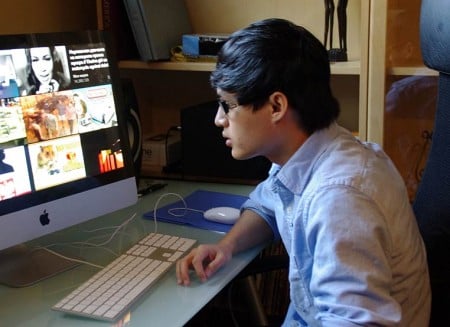
Huan Tran working on Proof of The Devil 2,
directed by Jason Hewitt
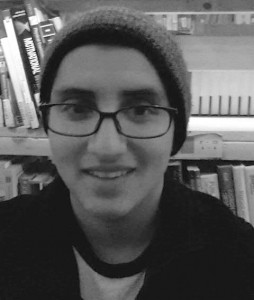
Juan Tarula

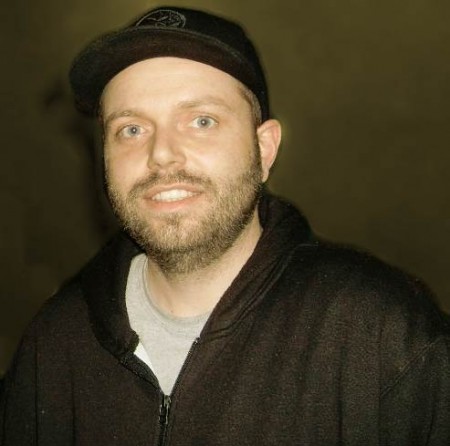
RC Mentor Larry Luther
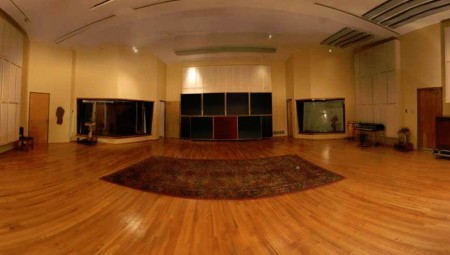
Mr. Smalls Recording – Live Room
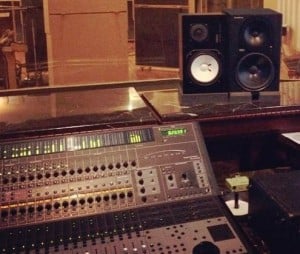 Larry: The one-on-one is great. I think it gives people a good opportunity. It is affordable for a lot of people that couldn’t afford to go to a more traditional school…I like that.
RRFC: Can you tell us a little bit about some of your apprentices? How is Anne Jacobs doing?
Larry: Yeah, Annie, she’s with me right now. She’s about halfway through. She’s doing really good. She’s a little different than a lot of the students I get…She never recorded anything in her life, so she’s been different that way where most people coming in have at least done some home studio stuff, have at least played around with it. She came from more of a theatre background and was just looking for other career opportunities, and came into it that way, and so it’s been a lot of fun with Annie. It’s been challenging at the same time just because everything is from scratch, even like what a microphone is. She really had no idea…She gets along with the clients really well.
RRFC: What qualities are you looking for in apprentices before you allow them to work with clients?
Larry: Just their personalities, for one. Working with clients, they have to be pretty personable and be able to work with people, a lot of dedication, which is the hardest thing that I’ve been able to find. It’s people that they say they want to do it, and then actually stick to it.
RRFC: Do you think that’s because a lot of people don’t understand that this is a service industry? You’re catering to clients constantly?
Larry: I think that’s part of it. I think some people have the wrong idea coming in that it’s just gonna be like hanging out with rock stars all the time and stuff like that, and it’s not really work, that kind of thing. The more that people are around clients, and they see how sessions really go and how much work it really is…Whenever I do the interviews, I try and talk very candidly and very directly with them and let them know what they’re getting into as far as the amount of work it is and how they have to be dedicated…I try to give it to them as straight as I can so they’re going to make a decision that this is going to be something that they’re going to stick to and really want to do because if they’re not dedicated or if they do come at it half-assed, they’re not going to succeed. I make them very aware of that.
Larry: The one-on-one is great. I think it gives people a good opportunity. It is affordable for a lot of people that couldn’t afford to go to a more traditional school…I like that.
RRFC: Can you tell us a little bit about some of your apprentices? How is Anne Jacobs doing?
Larry: Yeah, Annie, she’s with me right now. She’s about halfway through. She’s doing really good. She’s a little different than a lot of the students I get…She never recorded anything in her life, so she’s been different that way where most people coming in have at least done some home studio stuff, have at least played around with it. She came from more of a theatre background and was just looking for other career opportunities, and came into it that way, and so it’s been a lot of fun with Annie. It’s been challenging at the same time just because everything is from scratch, even like what a microphone is. She really had no idea…She gets along with the clients really well.
RRFC: What qualities are you looking for in apprentices before you allow them to work with clients?
Larry: Just their personalities, for one. Working with clients, they have to be pretty personable and be able to work with people, a lot of dedication, which is the hardest thing that I’ve been able to find. It’s people that they say they want to do it, and then actually stick to it.
RRFC: Do you think that’s because a lot of people don’t understand that this is a service industry? You’re catering to clients constantly?
Larry: I think that’s part of it. I think some people have the wrong idea coming in that it’s just gonna be like hanging out with rock stars all the time and stuff like that, and it’s not really work, that kind of thing. The more that people are around clients, and they see how sessions really go and how much work it really is…Whenever I do the interviews, I try and talk very candidly and very directly with them and let them know what they’re getting into as far as the amount of work it is and how they have to be dedicated…I try to give it to them as straight as I can so they’re going to make a decision that this is going to be something that they’re going to stick to and really want to do because if they’re not dedicated or if they do come at it half-assed, they’re not going to succeed. I make them very aware of that.
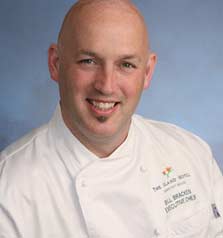 “Traditional culinary education to me is the apprenticeship mentorship approach. This is the way our culinary industry started out. I believe the mentorship approach to culinary education is a sound one. The profit loss statement of every culinary operation looks to productivity and efficiency as its number one priority. Having to re-teach culinary graduates is not only inefficient but also costly and time-consuming”
— Bill Bracken, Owner of “Bracken’s Kitchen” Food and Beverage Consulting, Los Angeles, CA
“Traditional culinary education to me is the apprenticeship mentorship approach. This is the way our culinary industry started out. I believe the mentorship approach to culinary education is a sound one. The profit loss statement of every culinary operation looks to productivity and efficiency as its number one priority. Having to re-teach culinary graduates is not only inefficient but also costly and time-consuming”
— Bill Bracken, Owner of “Bracken’s Kitchen” Food and Beverage Consulting, Los Angeles, CA

RRFC is education upgraded for the 21st century.
Get the latest career advice, insider production tips, and more!
Please fill out the following information, and RRFC Admissions will contact you to discuss our program offerings:
Stay in the Loop: Subscribe for RRFC news & updates!
© 2025 Recording Radio Film Connection & CASA Schools. All Rights Reserved.



